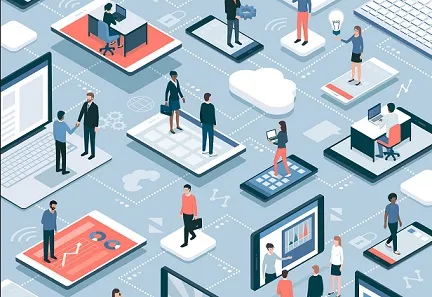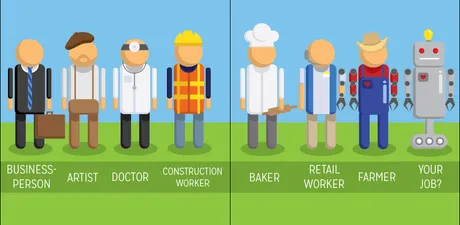
What even is an Economy?
This seemingly mundane question has no answer.
It feels like such a simple question that anyone should be able to handle, but when we actually try to come up with it, inevitably shall be woefully incomplete. Even authors who have written entire books on the topic have never really fully defined what an 'economy' is. At the end of the day the question is entirely too open ended. It's like asking what a "person" is. One could be an expert in the field of genetics and still not accurately describe a person, just like an economist can not fully describe an economy. At the end of the day these topics are simply too complex and diverse for words.
But surely we can give it a whirl.
In my quest to figure out a good model for WEB3 gaming I realize that understanding how these things operate in the real world helps get a jumpstart on the digital world. Surely not everything will translate one to one but there are some solid noteworthy similarities.
What is the point of an economy?
Where buyers meet sellers: markets are made.
Humanity itself is a hive. It's weird to think that there are literally billions of us running around on this blue ball, all doing our own thing. None of us can do it all, and ultimately that is the point of an economy. Perhaps it's also why society has this morbid fascination of people being stranded on a deserted island. Can they survive when left to their own devices? Surely we know that some can and have survived, but they certainly can't thrive in that environment. It takes a village.
What does a person want?
- Food
- Water
- Shelter
- Clothes
- Shoes
- Phone
- Car
- Internet
- Art/Style
- Sunglasses
- Guns
- Scissors
- Flashlight
- Gym
- Razor
- Toothbrush
- Deodorant
- Barber
- Kitchenware
- Arm & Hammer Super Scoop cat litter
Obviously I can't list them all.
Every person is different and wants different things. There are a few universal needs we all have like food/water/shelter but a lot of the goods and services that exist within the economy are quite optional. Few of us NEED a pair of scissors, but most of us have a set of them regardless. Convenience is king.
And how many people does it take to make all that?
Again, nobody can make any of these things by themselves, and if they can do it themselves it is very often the case that scaled up economies render that action quite inefficient. Sure, you might be able to fashion a T-shirt yourself... all you have to do is grow the cotton, pick it, loom it into fabric, and then sew it into a shirt. Then again, where'd you get that sewing needle? Did you make that yourself as well?
I can not pulverize my own Kidney stones.
It becomes painfully obvious that the correct way to go about these things is to allow everyone to specialize in their own field and provide services in exchange for money, which can then be used to purchase services for others. What's easier: making your own T-shirt or being a lawyer and just buying one at the store? Even for jobs that don't pay well the answer is almost always buying one from someone else. Even if you're in the business of making T-shirts, you're almost certainly buying raw materials from somewhere else, because that's an entirely different specialization.
Largo Embargo
Even entire countries full with millions of people are not self-sustainable. How crazy is that? Why do imperialist nations like USA impose sanctions against other countries? Because they work. A country like Venezuela or Cuba gets devastated by embargos when they lose their ability to trade with others. Luckily for a country Russia it hasn't hurt as much because superpowers are much more sustainable and the world needs their oil regardless of what anyone says about it.
As much as I'd like to say that America is sustainable... just look at our imports. What would happen if China just up and stopped trading with us? I'm not sure if that would be worse for China or for US, but certainly both sides would suffer. It is in this way that trade and commerce create value for both parties, which is a key concept to understand when parsing economic necessity.
How can this translate to the digital world?
Ah well if we're looking at something like a video game then it's quite easy to see that none of the variables are in alignment. After all, the assets in any video game are artificial for starters, meaning that some centralized agent could click a button at any time and create and infinite number of any resource.
It becomes clear that no game has ever solved these problems of artificial scarcity or specialization. In fact, the only model that can possibly hope to solve them is WEB3 because at least in that case the consensus is decentralized and artificial assets can't be printed out of thin air (just like Bitcoin & Hive). However there are a lot of fake products out there (like 99% of DEFI & HiveEngine) where devs absolutely can print as many tokens as they like on a technical level. Not great.
Expertise
Crypto easily solves the digital artificial scarcity problem if it employs proper decentralization, but creating a network that requires an economy is another matter entirely. For one, bots ruin everything, so even if you wouldn't be able to do everything by yourself normally bots and the Sybil attack allow more technical users to game the system into the dirt. This is why I keep harping on the idea that accounts themselves should be limited. The idea that anyone can create a non-kyc account and participate within such economies is not a feasible one.
As comical as it sounds within a crypto ecosystem that means that KYC is the answer. Of course the difference here is that the KYC is performed by the network and not by the government and 'official' documentation. Is @edicted KYCed? Yeah, of course I am. None of you know my name or where I live or my social security number, but that doesn't matter. My reputation on Hive speaks for itself. There are hundreds if not thousand of Hive users that are KYCed in this way. There's a reasonable expectation that all these users are trustworthy to a certain extent (fuck around and find out), and that's powerful.

It becomes quite evident that if we want to create digital economies (especially within the contest of gaming) then the specialization paths need to vast. Someone who mines metals from a mountain shouldn't also be farming their own crops, blacksmithing their own armor, or picking their own herbs. Every account should be forced to specialized in a certain field, with the only way to get goods from other fields being to trade using the underlying currency.
This concept extends to products that are not artificially scarce as well, but only needs to be forced within artificially scarce ecosystems. Nobody in the real world is going to stop you from being a neurosurgeon and a farmer at the same time, it just doesn't usually work out that way by necessity (because the services being delivered are not artificial in nature and time is the ultimate resource). I suppose with this in mind it would be best to create systems that were not artificial, but unfortunately this would be akin to simply turning a fantasy world into a boring digital world of work that wasn't fun to play.
That being said there are non-artificial assets within WEB3 as well.
- Graphics/Sprites
- Music
- Skins
- Voice Acting
- Balancing (nerf hammer)
It is possible in WEB3 to tokenize these real jobs and give 'employees' ownership over the work they've done. More importantly: when we look at how much time it takes to create a game, the vast majority of the work that needs to get done fits into one of these boxes. Meaning that if and when WEB3 games of this nature are getting built the underlying skeletons will get prototyped quite quickly, with all the real work being left to the community to bring it to life. Interesting times we're living in to be sure.
Conclusion
The key to economics is specialization. This was true even before the industrial revolution happened (mass production). You wouldn't have a blacksmith mend your shoes (cobbler) just like you wouldn't let a farmer treat an infection. As nice as it would be if we could do it all ourselves... we simply can't. This is the entire purpose of an economy at scale and the currency to lubricate it. Together we are stronger.
The trick is cutting out the festering corruption that stems from blatant centralization of power while still preventing the Sybil attacks using KYC & other reputation based systems. Not a simple task to be sure. Regulation has a purpose, but unfortunately for us it comes with extreme diminishing returns.
Return from Economies & Specializations to edicted's Web3 Blog
